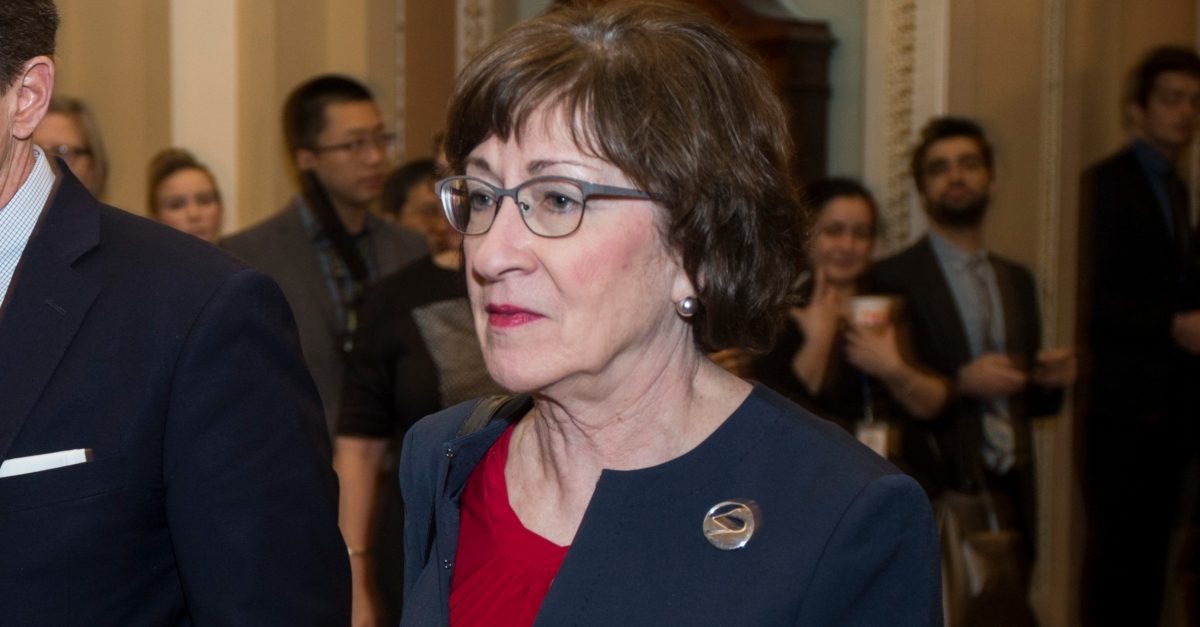
As multiple pro-impeachment protesters organized outside of her offices on Tuesday, Maine’s senior Senator Susan Collins (R) attempted a “both sides” approach when addressing the proceedings against President Donald Trump. She did not take a stand, even when asked if she thought the Bidens should testify in the impeachment inquiry.
Until somewhat recently, Collins was widely regarded as one of Congress’s last remaining vestiges of moderate Republicanism – fiscal conservatives who were not afraid to buck the party-line on controversial issues. Since President Trump took office, American politics have steadily bifurcated, leaving a chasm-like partisan divide of pro-Trump or anti-Trump voters with little room for moderates.
Collins, who’s been one of the surest re-election bets since her 1996 election, has struggled to find her place in the new political reality; she finds herself in real jeopardy of being ousted in her 2020 re-election bid.
“My role is that of a juror and a judge and just at you wouldn’t want a juror to go into a case with pre-judgments and not being familiar with all the evidence, I feel very strongly about that. That is the stance I took at the impeachment trial of President [Bill] Clinton years ago and that it’s the one I’ll take today,” Collins told local news station WCSH. The “I’m a juror” answer has been used by more than a few Republicans — and even leading Democrats in the Senate. Collins has given this answer before.
But Collins also refused to rule out the prospect of having the former Vice President Joe Biden and his son Hunter Biden being called before Congress as part of the ongoing impeachment proceedings.
“I don’t think that is likely appropriate,” Collins replied when asked if the father-son duo should testify, “but I want to see all of the evidence before making any decisions in that way.”
Collins’s answer may further alienate moderate Pine State voters, some of whom were disheartened by her vote to confirm controversial then-nominee Brett Kavanaugh to the Supreme Court despite accusations of sexual misconduct against him. Still others were bothered that Collins voted to confirm Kavanaugh despite questions about his view on Roe v. Wade.
Public Policy Polling released data last month showed Collins maintaining only a 35 percent approval rating and 50 percent disapproval rating among Maine voters. She also trailed a generic Democratic Party candidate 44-41 percent.
[image via Zach Gibson_Getty Images]